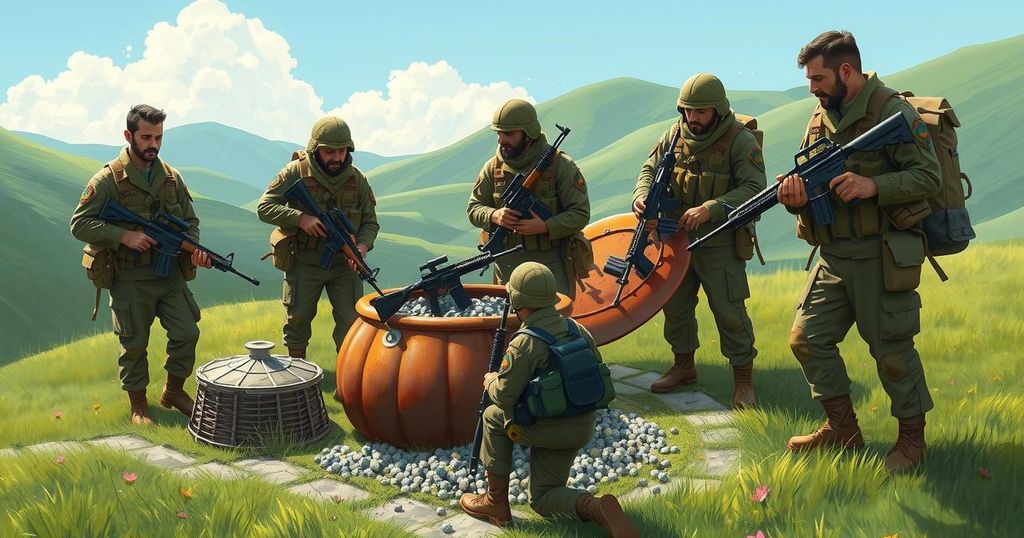Kurdish Fighters Symbolically Disarm as Peace Efforts Progress in Turkey
- Kurdish fighters burned their weapons in northern Iraq, signaling progress in peace talks.
- Abdullah Ocalan’s call for disarmament is pivotal for the PKK’s transition.
- The PKK has shifted from seeking a Kurdish state to seeking autonomy within Turkey.
- Devlet Bahceli’s proposal for Ocalan’s parole marks a notable policy shift.
- The peace process faces significant challenges and past failures loom large.
Kurdish Fighters Take Symbolic Step Toward Peace Efforts
In a significant development this weekend, a group of approximately 30 Kurdish fighters, dressed in camouflage, burned their weapons in northern Iraq. This event marks a notable milestone in the longstanding effort to resolve Turkey’s nearly 40-year conflict with the Kurdish Workers’ Party, known as the PKK. The image of these fighters ceremoniously laying down their arms comes after their imprisoned leader, Abdullah Ocalan, recently urged disarmament as part of a comprehensive peace initiative with Turkey.
Understanding the PKK’s Evolution and Impacts
The PKK, which has been in conflict with Turkey since 1984, initially aimed to establish a Kurdish state but over the decades, the focus has shifted to struggles for autonomy and rights for Kurds living in Turkey. With tens of thousands dead and the conflict extending into Iraq and Syria, Turkey, the U.S., and the European Union classify the PKK as a terrorist organization. Ocalan, having founded the PKK and faced years of imprisonment, remains a pivotal figure in this movement, continuing to influence Kurdish aspirations from prison despite being cut off from direct communication after his initial capture in 1999.
Navigating the Challenges of Negotiation
The current peace initiative was set into motion by Devlet Bahceli, an ultranationalist politician, who suggested that perhaps Ocalan could see parole if the PKK disbands. This appears to contradict his previously firm stance against any form of negotiation with Kurdish groups. As Ocalan’s call for disbanding has gained traction, the PKK’s recent declaration of a ceasefire adds complexity to future negotiations, with indications that Kurdish groups want assurances for their members within the Turkish political system. But amid this progress, concerns persist about potential splinter factions emerging and whether violence will actually diminish, as evidenced by a recent attack claimed by the PKK against a Turkish aerospace firm.
The Complicated Landscape of Peace Negotiations
Historically, past attempts at negotiating peace between the Turkish state and the PKK have often failed, despite some promising developments like the talks held from 2013 to 2015. Those negotiations led to a temporary ceasefire and promises to enhance Kurdish rights, but agreements fell apart amid violence, leaving many questioning whether a lasting peace is feasible this time around. Now, as various geopolitical dynamics evolve in the region—characterized by power shifts in Syria and the continuously volatile Israel-Hamas situation—both Turkey and the Kurds face immense challenges in finding a path forward that ensures security and stability.
The ongoing efforts to end Turkey’s decades-long conflict with the Kurdish PKK have taken a significant step with the ceremonial disarmament of fighters. Abdullah Ocalan’s influence remains critical, guiding the group’s actions amid a complex geopolitical landscape. However, whether this marks the beginning of a stable peace remains uncertain, given past failures and potential internal challenges within Kurdish factions.




Post Comment